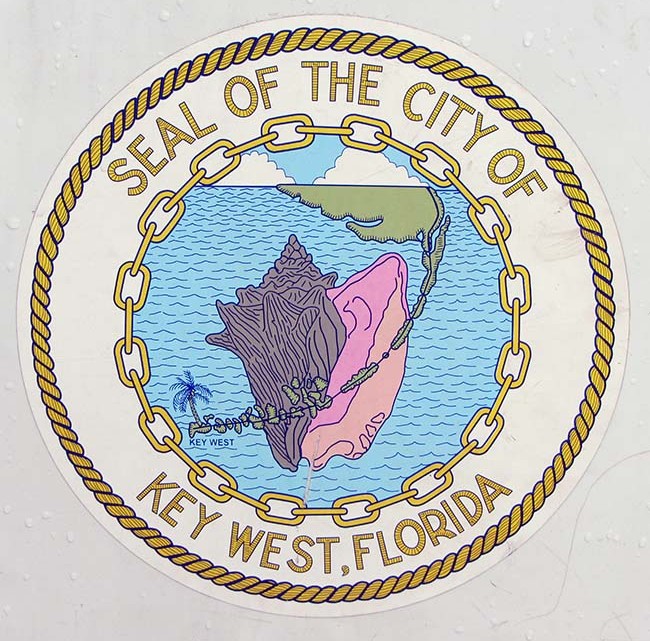Mallory Square restaurant gets go-ahead over objections
BY PRU SOWERS
KONK LIFE STAFF WRITER
Putting an end to over nine years of legal wrangling, excuses and surprising last-minute reversals, Key West City Commissioners beat back the latest attempt to stop construction of a proposed new restaurant in Mallory Square.
Commissioners voted 6-2 at their June 17 meeting to reject a resolution brought by Commissioner Jimmy Weekley that would have thrown out the restaurant plan proposed by Joe Walsh, president of Tropical Soup, which operates five restaurants in Key West, and look for new bidders. Commissioners are now expected to approve Walsh’s major development plan that includes a 156-seat restaurant, restores the historic cable huts at the location and builds a small historical museum at their next meeting in July.
If granted, the approval will have been a long time coming, something that both Mayor Teri Johnston and Commissioner Sam Kaufman said was grossly unfair to Walsh, who made multiple changes to the restaurant design to appease the city planning board, the Historic Architectural Review Commission (HARC) and even the hotel next door, which currently has a monopoly on waterfront dining on Mallory Square.
“This is just nonsense. This applicant [Walsh] has jumped through every hoop. It’s the city that has withheld their lease,” Johnston said. “The whole process stinks to high heaven.”
Johnston was referring to last-minute decision reversals by city Planning Director Patrick Wright and City Manager Jim Scholl. In April of this year, Wright had submitted a recommendation to commissioners that Walsh’s major development plan be approved. Scholl listed the resolution on the May 7 commission meeting agenda and had previously signed off on Walsh’s application to HARC in March 2017. But on May 3, attorneys for next-door Margaritaville Key West Resort, which operates Bistro 245, the only waterfront restaurant on Mallory Square, sent a letter outlining several objections to the development plan, including the design for a 300-square foot kitchen, too small for a full-service restaurant. And on May 7, literally minutes before the start of the commission meeting where the plan was going to be voted on, Wright withdrew his approval recommendation and, instead, asked that the plan be sent back to the planning board for consideration.
Scholl and Wright said they were unaware of the small kitchen design, despite the kitchen being downsized in 2017 after both the planning board and HARC said no demolition of the historic cable huts would be allowed. Since Walsh’s plan proposed to build a kitchen in one of those two huts, he had to reduce the size of the kitchen and move it to the bar area. Food preparation would be done in one or more of his other Key West restaurants, delivered to Mallory Square and then plated and served to customers.
Scholl said both he and Wright were unaware of the smaller kitchen and suggested Walsh changed the design plan without alerting city officials. But Walsh pointed out that the smaller kitchen design plan was submitted to the city in March 2017. Apparently, no one caught the change.
“So, it slipped through everything, all of these meetings,” asked a dumfounded Kaufman.
“Absolutely,” Scholl replied, adding that when he signed off on the 2017 application to HARC, he didn’t have a “stack of documents” to review before approving the application.
“By the time we were made aware of the plan, it was very late in the process that the kitchen had been removed. In all that time, again, with different planning directors and different city managers, it certainly didn’t come to my attention until before that [May 7] meeting.”
Walsh said the apparent ignorance of the design change was not due to any lack of documentation on his part.
“If it was less than 100 pages, I’d be surprised,” he said about the March 2017 application to HARC that Scholl signed off on. “The drawings would need to be part of the application in order to be able to submit it to HARC.”
Weekley said his objection to the plan was due to all of the changes the design has gone through in the past nine years since Walsh first submitted his plan in response to a request for proposals from the city. The original RFP is no longer in effect, Weekley argued. He also attempted to sway his colleagues by downplaying the effort the city has put into the project by asking city Attorney Shawn Smith how much time and money the city had spent overseeing the restaurant project. Smith said very little effort and expense was incurred, despite Walsh appealing the HARC project denial to a special magistrate in 2017. When the magistrate overturned the HARC veto, the city appealed that decision to the 16th Judicial Circuit Court, which upheld the magistrate’s decision.
Mayor Johnston disagreed with Smith’s assessment.
“When we say we haven’t spent any time or money on this, that’s just a misstatement. Not only have we not received $303,000 in rent from this applicant, Mallory Square continues to fall into a state of disrepair,” she said.
Walsh had agreed to make rent payments to the city totaling $303,000 a year or seven percent of his gross sales, whichever was greater.
[livemarket market_name="KONK Life LiveMarket" limit=3 category=“” show_signup=0 show_more=0]



No Comment